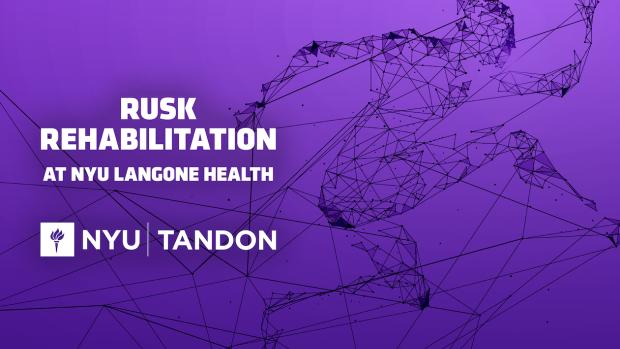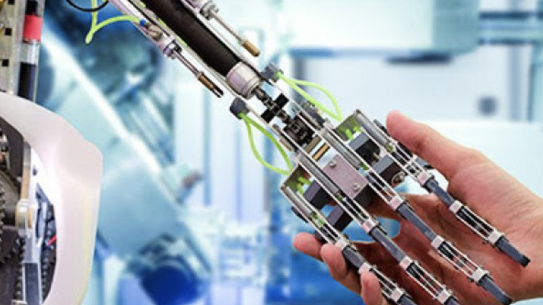The Tandon/Rusk Transformer Challenge kicks off a race for rehabilitation solutions

The 2020 Tandon Made Challenge, which called on incoming students to form groups with classmates they had yet to meet in person and solve a pressing healthcare challenge presented by the COVID-19 pandemic, resulted in a plethora of innovative ideas — from a device that enables medical responders to stream live footage of a patient during an ambulance ride to no-touch elevator buttons.
How to top that? Get faculty members in on a challenge.
The recently announced Tandon/Rusk Transformer Challenge allows engineers from NYU Tandon and experts from NYU Langone Health’s Rusk Rehabilitation to team up to create new assistive technology, rehabilitation apps, wearable devices for preventative care, and more. Teams, which must include at least one member from each organization, will vie for two $10,000 prizes and the chance to take their innovations from concepts, ideas, or research interests to prototypes — and eventually products or services that can be introduced to the market.
Tandon engineers have a long history of partnering with clinicians to move their work from lab bench to patient bedside: for proof just consider alum Jasper Kane, who graduated in 1928 and went on to develop a method to mass produce penicillin, saving countless lives during WWII. For more recent examples look to Guido Gerig, chair of the Department of Computer Science and Engineering, who is renowned for his seminal work in extracting information from scans of the human brain, leading to a deeper understanding of how autism can be predicted, how traumatic brain injuries can best be treated, how the normal brain develops, and more. Read about the work of Professor Weiqiang Chen, whose team is developing biosensors to help harness the power of cytokines (small proteins secreted by lymphocytes to direct the body’s immune response to specific cells) to treat cancer. Then there’s Andreas Hielscher, who heads the Department of Biomedical Engineering and whose translational work focuses on developing new medical imaging technologies that use near-infrared light instead of more common X-rays or ultrasound.
We know there are exciting innovations at both Tandon and Rusk, and the intersection of the two can only be exponentially more exciting now that we’ve teamed up with our colleagues to launch the Transformer Challenge,” said Steven Kuyan, Director of Entrepreneurship at NYU Tandon, who is helping oversee the competition. “We are expecting faculty members from both sides to collaborate, and as the name suggests, introduce transformative ideas to rehabilitation.”
Kuyan and his colleagues can play matchmaker between Tandon and Rusk researchers if need be, helping ensure that any engineer or rehabilitation expert with a good idea will find a counterpart at the other institution to bring it to fruition. Once a team is formed, researchers can elist graduate students to participate as well, and the initial submissions are due on January 18.
John-Ross Rizzo — a professor at the NYU Grossman School of Medicine and the Director of Innovation and Technology in its Department of Rehabilitation Medicine — is organizing the Challenge along with Kuyan. Rizzo, who also holds an appointment in Tandon’s Departments of Mechanical & Aerospace Engineering and Biomedical Engineering, is fond of a Thomas Edison quote that instructs: “There’s a way to do it better — find it,” and he believes collaboration can be among those better ways. “Medicine and engineering pair to become the ultimate innovation dyad,” he says. “While we often state that the whole is greater than the sum of its parts, Aristotle's storied words require one modification! The whole is greater than the sum of its parts, and has the potential to grow with ‘compounding interest,’ when those parts comprise medical acumen and technical prowess!”


